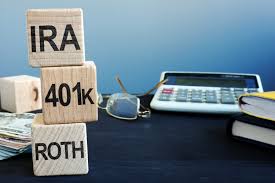From Stocks, Bonds to Mutual Funds
10 Ways to Invest Your Money, the Right Way
Saving money with an eye for investment is not an easy thing to do. It is hard to know where to place your money and how much of it. What kind of an account will it be and what investments are right for you takes time to figure out. The list below goes through 10 common types of investments and explains why you should or should not use a particular account. If you are interested in investing you may want to talk to a financial advisor before you get started. They will tell you about all the different types of accounts you can choose from.
Stocks
Almost every large company you can think of has its own stock. This is a simple investment type that is not so simple. You are essentially buying a piece of a company such as Apple or Facebook. If it is trading on the public stock market you can buy it.
When you buy a piece of a company you do so with the hope that it will go up with time so you can sell it for profit. They can always go down as well and there are generally fees associated with each purchase so if it goes down, you did not even make your initial investment back.
If you want to work with someone because you are unsure of how to buy and sell a stock you can find a face-to-face broker to manage your accounts. You can also sign up for a self-managed brokerage account online and start your investments.
Bonds
When you buy a bond, you are lending money to a business or a government entity. These ate issued as corporate bonds for a business or municipal bond for a government entity. There are also U.S. Treasury bonds that help the Country.
Once the bond has matured, reached the applicable date on the bond, you will have earned back your initial investment, plus the interest made on the investment.
Generally, the amount of money you get as a return in the stocks is higher than for bonds. Bonds carry a lower risk and are a guarantee of a return where the stocks are not. There is some risk though becomes the company you buy the bond from could close or default could happen with the government. Buying treasury bonds is a lot safer an almost guaranteed investment.
Mutual Funds
A mutual fund is where multiple securities get invested in a handful of companies. It can be managed with an investor running the entire fund or it can be left to be reviewed periodically. A fund manager is one who actively manages the investment and who are dedicated to beating the market. If the fund is passively managed it will track the stock market. Mutual funds can be only stock or mutual fund or a mixture of stocks and mutual funds.
It should be noted that mutual funds carry the same risks as stocks and bonds because they are stock and bond held in larger amounts. There are fewer risks when you invest in mutual funds though because the accounts are designed to be balanced for market shifts.
Exchange-Traded Funds (EFTs)
Exchange-traded funds are a collection of investments that follows the market index. They are very similar to mutual funds in this way. Where they are different is that they are purchased through a Fund Company not directly through from the company itself. They are also bought and traded on the stock market like regular stocks and like stocks, their prices adjust as the market adjusts. Mutual funds are the final value of your investment.
Exchange-traded funds are good for new investors because they are more stable and offer more diversity than buying stocks from just one company. It is a way to minimize risks for the new investor because they track a broader index.
Certificate of Deposit (CD)
A certificate of Deposit is an easy way to start saving and earning money on your investment. It is one of the lowest risk ways of doing so. You give the bank a set amount of money and a period of time and after that period is over you have your investment back plus any interest it made during that time period. There are some Certificates of Deposit that can last years and have very large interest rates of return. There are some that last only days for a short time investment.
CDs are considered low-risk, but they are almost no-risk investments. You only need to worry about the bank it’s in collapsing financially and there are enough procedures in place to prevent this. They are loans insured by the FDIC for up to $250,000 which will cover your investment if the bank does collapse. The only real worry about this kind of an account is the need of the money should something happen and you do need to access it. There are large penalties for an early withdrawal so think twice before you touch one.
Retirement Plans
Find the right retirement plan for you is almost as hard as picking out the correct way of investing your hard-earned money. There are workplace retirement plans such as the 401K and 403b plans. If this isn’t an option or if you want multiple places to put your money than a traditional IRA or a Roth IRA retirement plan is what you need.
Retirement plans are used to make investments in stocks, bonds and various funds to be used to fund your retirement. Most of these funds, except the Roth IRA, are pre-tax dollars. This means you will not be taxed on the money in your retirement account until you start withdrawing the funds after you reach the age of 59 ½., By then, you should be in a lower tax bracket. The risks are the same if you have one of these accounts or are investing in the market or in mutual funds on your own; these types of accounts are meant to generate income for later so there is time for it to grow if you start it late enough.
Options
An option is when you buy an asset at a certain price and time. This is like stock but is more complicated. When you are buying an option there is the risk that the stock it is attached to will decrease from the price you initially paid. To purchase an option, you need special approval because it is considered highly advanced investing and it is very risky.
Annuity
Annuities are often tied to retirement savings accounts. You are purchasing a piece of an insurance company so you can be paid periodically for holding a piece of their contract. The payments can begin immediately or be delayed until a future date. They can also last the lifetime of a person or end after a period of time depending on the type of annuity purchased.
Cryptocurrencies
Cryptocurrency or the Bitcoin is a form of digital currency that has no bank or government backing. They can be bought and sold on cryptocurrency exchanges and some companies even allow purchases made with them. Because this form of currency is so new has wild market fluctuations and is an extremely risky venture.
Commodities
A commodity is a physical product you can buy such as oil, wheat, barley, corn, coal, and solar power. Gold and silver are also common commodities.
Commodities can be a risky investment because they are often tied things outside of its control like food products being ruined by storm or drought. If bad weather like this happens, then the price of the food commodities goes up or down in price because of scarcity or if new regulations are passed to restrict coal or oil production then the price goes up or down depending on the trends of the market. They can fluctuate greatly because of political actions.



0 Comment
Some great ways to invest money. Long term stocks, bonds and mutual funds come with certain levels of risk and the higher the risk the higher the reward.
Comments are closed.